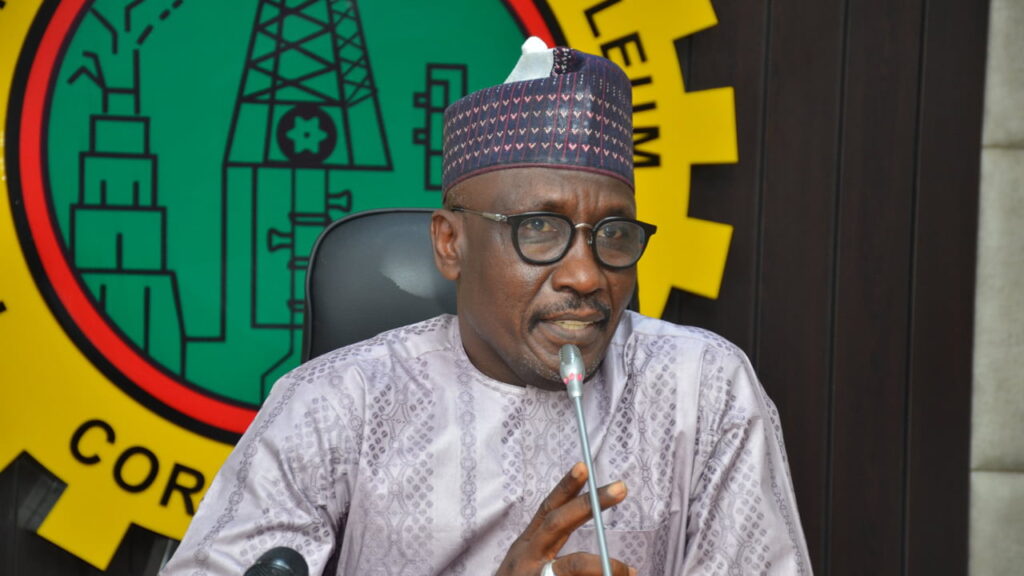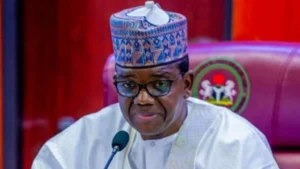Mele Kyari, the Group Chief Executive Officer (GCEO) of the Nigerian National Petroleum Company (NNPC) Limited, has taken legal and security steps against people spreading false information about the company’s fuel quality.
Recently, a viral TikTok video showed a man comparing two small generators, known as ‘I better pass my neighbour’ in Nigeria. He claimed that petrol sold by MRS Oil, refined by Dangote, lasted longer and was cheaper than fuel from NNPC stations.
Speaking at the 60th Nigeria Mining & Geosciences Society (NMGS) Conference in Abuja, Kyari called this claim a “bad marketing practice” and “unfortunate drama.”
He assured Nigerians that all fuel sold by NNPC meets the required quality standards set by regulatory agencies.
Kyari explained that fuel quality standards vary from country to country. He gave an example of Europe, where an oxygenate additive is required in petrol to prevent it from freezing inside cars.
However, if this additive is used in Nigeria, it would turn into water when exposed to air. This shows that what works in one country may not work in another.
He emphasized that Nigeria has strong regulatory bodies like the Standard Organisation of Nigeria (SON) and the Nigerian Midstream and Downstream Regulatory Agency (NMDPRA), which ensure that all fuel meets the required specifications. According to Kyari, these agencies have not found any substandard fuel in Nigeria.
Kyari warned that spreading false information about fuel quality does not just harm NNPC but affects the entire country.
He stressed that while people have the right to express their frustrations, spreading misinformation about fuel is dangerous for business and the economy.
He also dismissed reports that NNPC imported 200 million litres of fuel in February, calling it a “baseless lie.”
Kyari clarified that NNPC did not import fuel during that period and that importation is a common practice in the oil industry worldwide. Even countries with refineries, such as Saudi Arabia and the UAE, import fuel when necessary.







